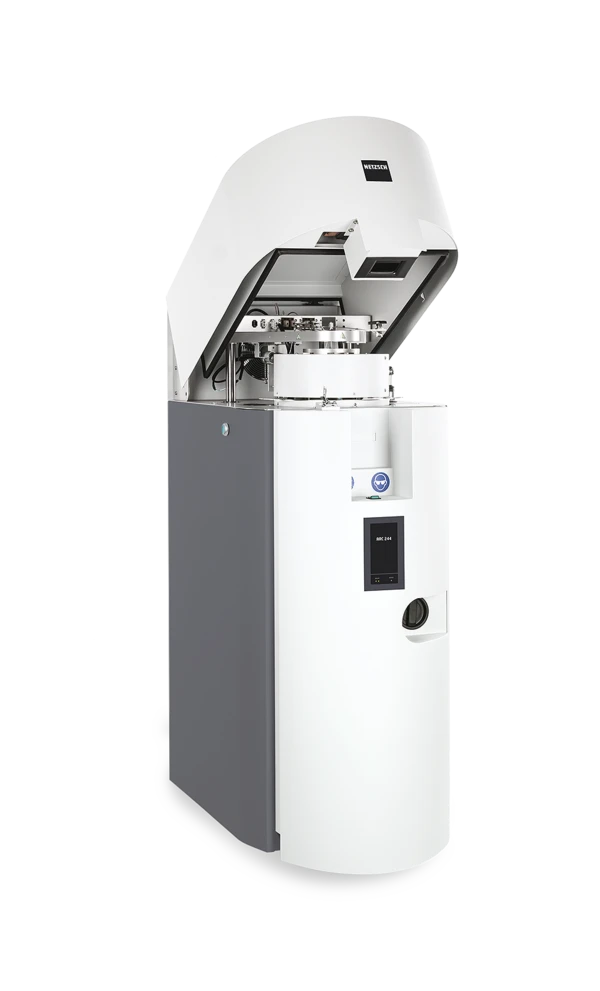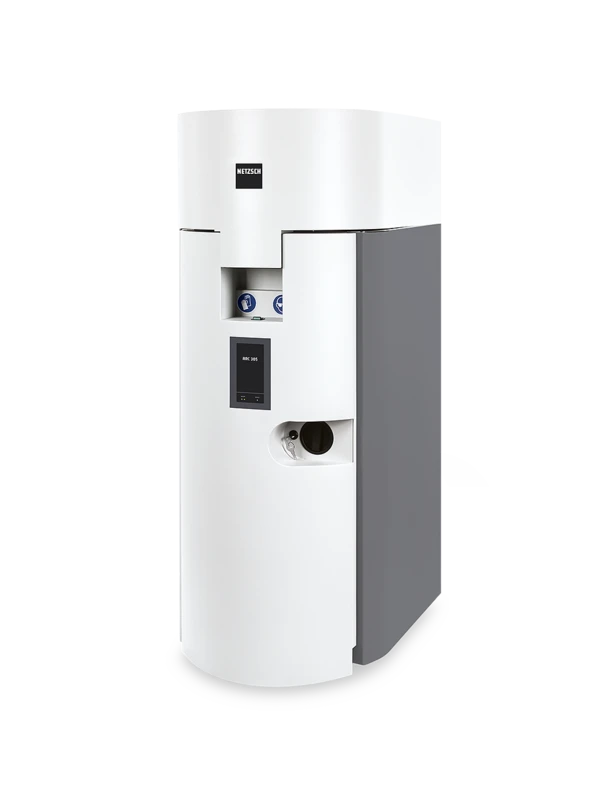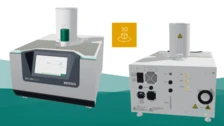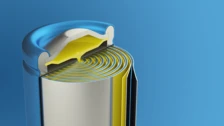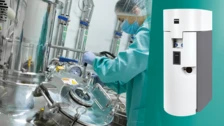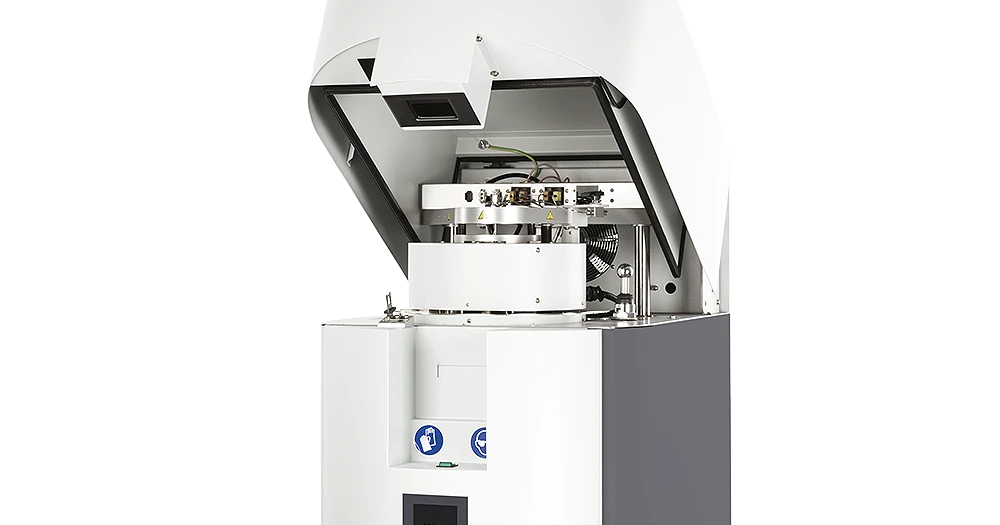
Accelerating Rate Calorimetry
The method describing IsothermalTests at controlled and constant temperature are called isothermal.isothermal and AdiabaticAdiabatic describes a system or measurement mode without any heat exchange with the surroundings. This mode can be realized using a calorimeter device according to the method of accelerating rate calorimetry (ARC). The main purpose of such a device is to study scenarios
and thermal runaway reactions. A short description of the adiabatic mode is “no heat in – no heat out”.adiabatic test procedures used to detect Thermally induced reactionA thermally induced reaction is a decomposition reaction exclusively started through heat treatment. thermally induced ExothermicA sample transition or a reaction is exothermic if heat is generated.exothermic Decomposition reactionA decomposition reaction is a thermally induced reaction of a chemical compound forming solid and/or gaseous products. decomposition reactions. The standard procedure is Heat-Wait-Search (HWS)Heat-Wait-Search is a measurement mode used in calorimeter devices according to accelerating rate calorimetry (ARC).Heat-Wait-Search (Heat-Wait-Search (HWS)Heat-Wait-Search is a measurement mode used in calorimeter devices according to accelerating rate calorimetry (ARC).HWS).
Accelerating Rate Calorimeters (Accelerating Rate Calorimetry (ARC)The method describing isothermal and adiabatic test procedures used to detect thermally exothermic decomposition reactions.ARC®) help industry operate safely and profitably.
As highly versatile, miniature chemical reactors, they measure thermal and pressure properties of ExothermicA sample transition or a reaction is exothermic if heat is generated.exothermic chemical reactions. The resulting information helps engineers and scientists identify potential hazards and address key elements of process safety design including emergency relief systems, effluent handling, process optimization, and Thermal StabilityA material is thermally stable if it does not decompose under the influence of temperature. One way to determine the thermal stability of a substance is to use a TGA (thermogravimetric analyzer). thermal stability.
Accelerating Rate Calorimeter 244 (ARC®)
The cost‐effective Accelerating Rate Calorimetry (ARC)The method describing isothermal and adiabatic test procedures used to detect thermally exothermic decomposition reactions.ARC® 244 is designed to safely measure the amount and rate of heat release associated with the processing or storage of chemicals within a container volume between 1.5 ml and 8.5 ml.
Accelerating Rate Calorimeter 305 (ARC®)
The Accelerating Rate Calorimeter 305(Accelerating Rate Calorimetry (ARC)The method describing isothermal and adiabatic test procedures used to detect thermally exothermic decomposition reactions.ARC®) provides AdiabaticAdiabatic describes a system or measurement mode without any heat exchange with the surroundings. This mode can be realized using a calorimeter device according to the method of accelerating rate calorimetry (ARC). The main purpose of such a device is to study scenarios and thermal runaway reactions. A short description of the adiabatic mode is “no heat in – no heat out”.adiabatic calorimetry data in a safe, controlled laboratory environment.
This information helps provide a sound understanding of the fundamental physical processes involved. From this understanding, various safe operating systems and procedures can be developed to mitigate the hazards posed by a reactive system.
Application Literature
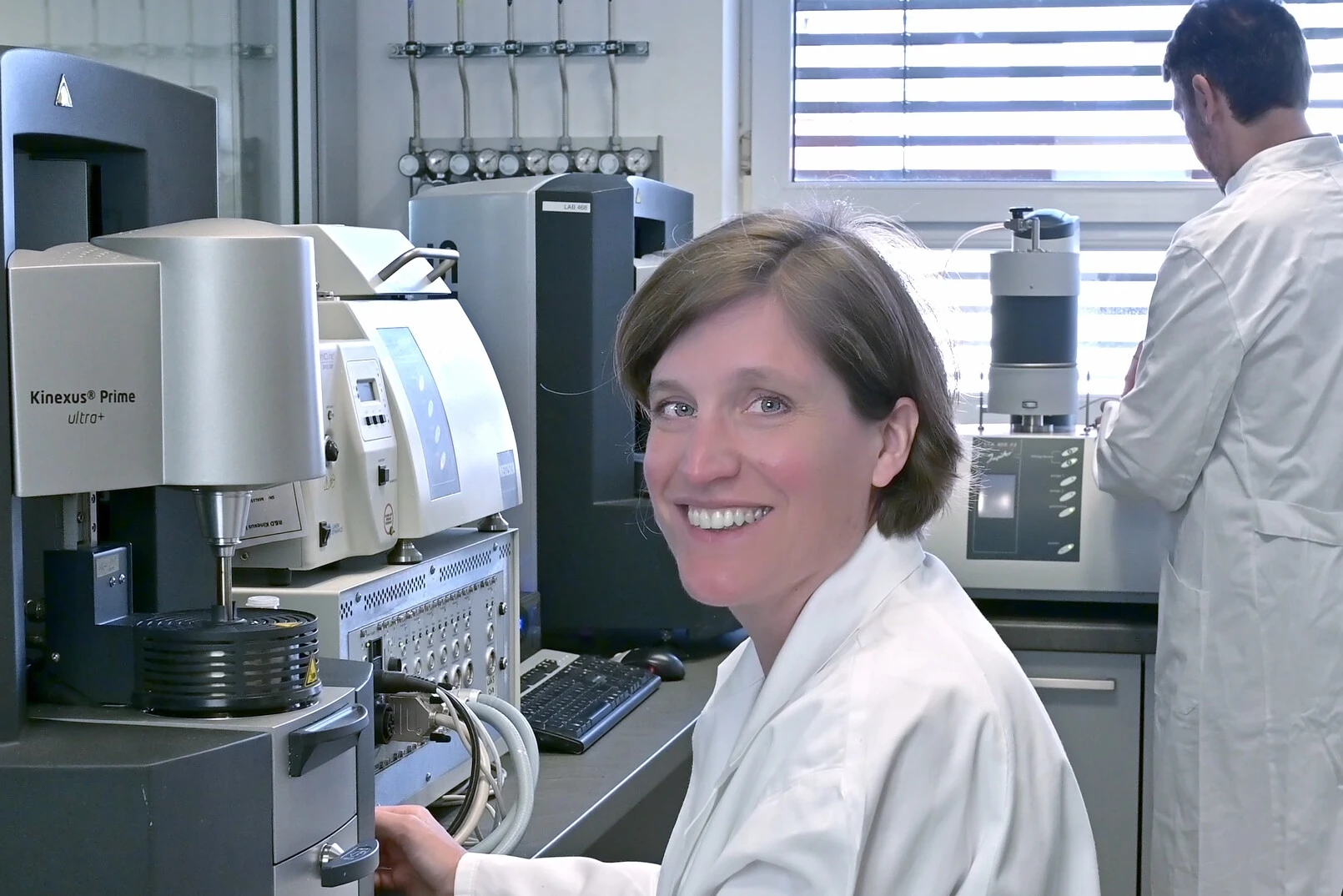
MEASUREMENT WANTED?
Our NETZSCH applications laboratory is providing contract testing services for a wide range of industries and research centers. It is equipped with state-of-the-art testing instruments allowing for a variety of thermal analysis measurements to be carried out.
Consult with the experts in our applications labs to choose the best-suited measuring method for your specific needs.
